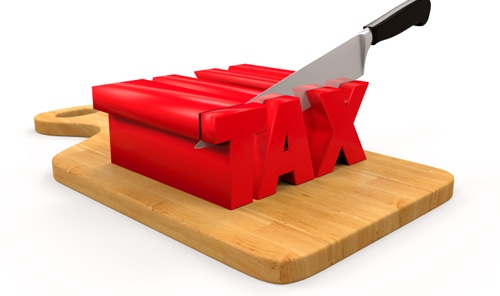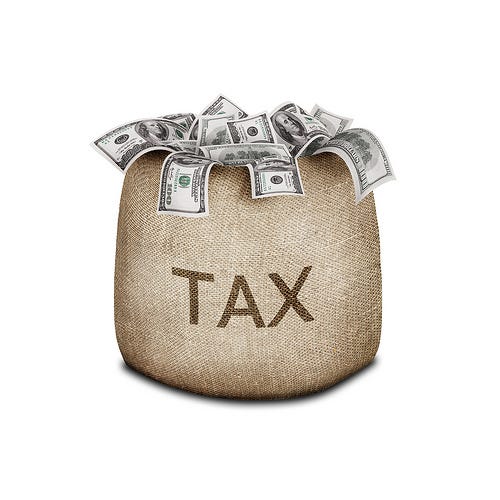The 2.3% excise tax on medical device sales is on its way. Here’s a primer to help companies prepare.

Set to take effect January 1, 2013, the 2.3% excise tax on certain medical devices, which was imposed as part of the Affordable Care Act (ACA), will pose significant challenges to the medical device industry. Although the tax will apply primarily to manufacturers and importers of medical devices, it’s safe to assume that the tax will have a far-reaching impact on the entire healthcare industry and consumers who need these devices.
Before the tax goes into effect, medical device companies need to understand which of their devices will be taxed, get and idea of how much they will owe, and deal with the compliance issues associated with the tax.
Which Devices Will Be Taxed?
The first order of business for medical device companies will be to determine if the manufacture and sale or import of a specific device is subject to this new excise tax. For planning purposes, the mindset should be that, indeed, the device will be subject to the tax. This is an important mindset because it gives companies time to budget and plan for this new cost, which more than likely will impact their pricing, salaries, and, ultimately, their bottom line.
The provisions of the excise tax on medical devices rely almost entirely on the definition of medical devices provided by Section 201(h) of the Federal Food, Drug, & Cosmetic Act to determine which devices are taxable. The tax will apply to devices that are intended for human use and will include dental instruments, dental equipment, and research-use-only devices.
There are three major categories of exemptions available:
Devices to be further manufactured.
Devices manufactured that are ultimately destined for export outside the United States.
Devices intended to be sold at retail for use by the general public (referred to as the “retail exemption”).
The IRS has already provided a great deal of guidance around the retail exemption, including providing specific examples. Items such as eyeglasses and hearing aids would be exempt. It is important to keep in mind that items qualifying under the retail exemption will not necessarily be bound by FDA Class I, Class II, and Class III listings. There are many items qualifying for the retail exemption that could fall under any of the above classes, including certain bandages (Class I), pregnancy test kits (Class II), and denture adhesives (Class III).
How Much Will You Owe?
Aside from determining if a device will be subject to the tax, there are two major issues that will need to be addressed by all companies: pricing models and calculating the amount upon which the tax will be assessed.
Pricing Models. Adapting pricing models for the new tax is a major dilemma for business leaders. Take the example in Table 1, of a medical device manufacturer that produces a device at a cost of $1000 and is able to sell this device today for $1335 to a distributor, realizing a gross profit of $335. Once the medical device tax takes effect, the tax will attach at the point of sale from the manufacturer to the distributor. In this basic model, the manufacturer now has an additional cost of $30.71 ($1335 x 2.3%) per device, regardless of whether the excise tax can be passed on to the distributor.
Table 1. A demonstration of the excise tax's effect on gross profit. |
|
Sales Price |
Cost of Manufacture |
Excise Tax |
Total Cost |
Gross Profit |
To further complicate matters, companies will have to pay the tax on inventory on hand on December 31, 2012, that is not sold until January 1, 2013. Many companies have probably not considered this in their current pricing models. The tax will also factor into the sale of a business. Regardless of whether the assets are sold or stock is sold, the tax will attach to all inventory transferred in the sale.
There is a lot of concern that the industry will see a significant drop in mergers-and-acquisitions activity going forward. To the extent a company bears 100% of the burden of this cost, this will reduce the earnings and thus the ultimate value of the company in a merger-and-acquisition transaction.
Companies also will have to factor the liability for the excise tax into sales price negotiations. The seller will have an additional liability at the time of sale for which the buyer may not be willing to adjust the purchase price.
Calculating the Amount Upon Which the Tax Will Be Assessed. The calculation of the sales price on which the tax is computed does not offer much room for pricing adjustment. Allowances for discounts and rebates cannot be factored into the sales price of the device until actually awarded to the purchaser. Additionally, costs of packaging, shipping, and warranties (not provided at the purchaser’s option) are also factored into the sales price for calculating the tax. The IRS will also assume that the sales price is determined at arm’s length, so it will be important to review pricing policies and documentation between related parties.
Compliance Issues
In addition to the myriad pricing issues, companies will also have to deal with compliance issues. Even if a company is exempt from the tax, it will still be required to register with the IRS. The IRS is already prepared to deal with noncompliance.
When the medical device excise tax takes effect, |
Companies that produce, manufacture, or import medical devices are currently required to register with FDA and update those registrations on a yearly basis. When the medical device excise tax takes effect, the IRS will most likely request FDA’s listing of registered companies and match it against its listing. As such, companies will not have the ability to fly under the radar.
The penalties for failure to register start at $10,000, with a $1000 penalty per day of noncompliance. Ironically, the IRS has yet to update IRS Form 637—Application for Registration (For Certain Excise Tax Activities) to reflect the new excise tax on medical devices.
Once registered, companies will need to document their various transactions. If a manufacturer or importer is selling for further manufacture or for further sale, it will need to obtain, in writing, a copy of the purchaser’s registration number and certification of the exempt purpose. They also need to receive proof of the resale within six months of the date of sale. Sales to a purchaser for further export will need to be documented with a registration number, proof of the export, and an exemption statement from the purchaser. Finally, companies will need to adapt their accounting systems to track the tax and put controls in place to report and remit the tax.
Conclusion
The excise tax on medical devices is quickly approaching. Despite a House of Representatives vote in favor of repealing the tax, bills to repeal the tax will face stiff opposition in the Democratic-controlled Senate between now and the November election. It is difficult to say if this provision of the ACA will be repealed even if a new president is elected in November.
With the impending onset of the tax, many critics are decrying the hit the medical device industry will take and are concerned about the impact to this industry. There will be many challenges ahead, but there will also be many opportunities. It will be interesting to see how companies respond in this new climate.
With this new tax slated to take effect in just a few months, many medical device companies are already planning and preparing for it. Companies that haven’t begun to prepare for the tax should start.
Mitchell Kopelman is the partner in charge of the technology and biosciences practice at Habif, Arogeti, & Wynne (Atlanta). He focuses on helping medical device companies with R&D tax credit studies, mergers and acquisitions, and proactive tax and accounting planning. He also works with companies as they expand globally or enter the United States. Kopelman graduated from Georgia State University with a bachelor’s degree in accounting. He can be reached at [email protected].
Ori Epstein is a tax manager in Habif, Arogeti, & Wynne’s technology and biosciences practice. He regularly speaks at medical device industry conferences on topics such as the excise tax, business trends within the medical device industry, and tax planning and preparation for medical device companies. Epstein graduated from the University of Georgia with a bachelor’s degree in accounting and a master’s of accounting with a concentration in tax. E-mail him at [email protected].
About the Author(s)
You May Also Like


